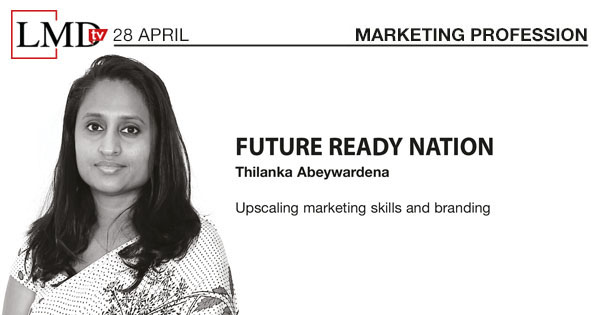LMD TV
“The knowledge economy is perceived as a buzzword but it helps marketers meet their responsibilities,” said the President of Sri Lanka Institute of Marketing (SLIM) Thilanka Abeywardena.
 Comprising four pillars, the knowledge economy drives the nation forward. Two of these pillars are education and training, and research and innovation – contributions that marketing education can make while the rest of the pillars rely mostly on the government and IT sector.
Comprising four pillars, the knowledge economy drives the nation forward. Two of these pillars are education and training, and research and innovation – contributions that marketing education can make while the rest of the pillars rely mostly on the government and IT sector.
Discussing initiatives oriented towards the SME sector within rural communities, Abeywardena remarked that “there are several such initiatives and one of them is Liyaka Mahima – empowering home-based women entrepreneurs.”
She continued: “We also have programmes such as consultant expert committees that support and encourage entrepreneurs.” Despite the challenges posed by the pandemic, she viewed this as a juncture for SMEs to recognise their strengths, combat threats and transform them into opportunities.
The World Economic Forum (WEF) states that by 2025, the number one job would be data scientist while digital and social media marketing will take the fourth position. “People believe that IT, marketing and finance are different jobs but digital is disrupting all these roles in a positive manner,” Abeywardena elaborated.
“When it comes to social media interactions, we have to identify and target our consumers as individuals,” she stated. “This requires marketers to brush up on their digital and social media marketing skills… Bringing this plan to fruition is a continuous and evolving journey.”
Commenting on the level of creativity brands display, Abeywardena pointed out that she is “inspired by the world-class quality of our marketing campaigns, which even bag Effie and Brand Excellence awards.”
“Digital is not merely about digital marketing and creative advertising campaigns. It extends to gaining insights from your consumers and crafting products,” she noted. This approach enables taking another step forward in the digital transformation journey of marketing organisations to have better conversations and offer greater value for consumers.
On a similar note, Abeywardena addressed the dynamical nature of big data in marketing.
Her argument is that the massive scale of data social media usage and generation of digital touchpoints are impossible to interpret manually.
Therefore, the pressing question for marketers to ask themselves is whether they’re using the data around them. She also acknowledged the challenges that big data presents – viz. information overload and analytical prowess.
However, she asserted that considering how insight-driven our decisions are will enable us to optimise our resources. “Fail fast and learn fast” is the approach to tackle the rapidly evolving nature of the business landscape, according to Abeywardena.
Moving on to the global trends in marketing, she also commented on the findings of a recent McKinsey report. A social media presence and online consumer engagement alone are not sufficient, while understanding new consumer trends such as households becoming command-centres and branding with a purpose are key.
“You can’t be a brand that only talks about your offers, discounts and product features,” proclaimed Abeywardena, adding: “There is now a need for brands to propagate and support a higher purpose to appeal to their fans, followers and consumers.”
In addition, she pointed out that only such brands can build brand loyalty in the new world brought about by the pandemic. Meanwhile, she also believes that businesses are prepared to market to the generations Z and Alpha.
Abeywardena summed up her views on how Sri Lanka should focus on branding its export products to garner premium prices as follows: “Anyone can replace your raw materials or undercut your prices; but it’s difficult to beat a powerful brand – backed by our heritage, values and all the other unique aspects of Sri Lanka.”




